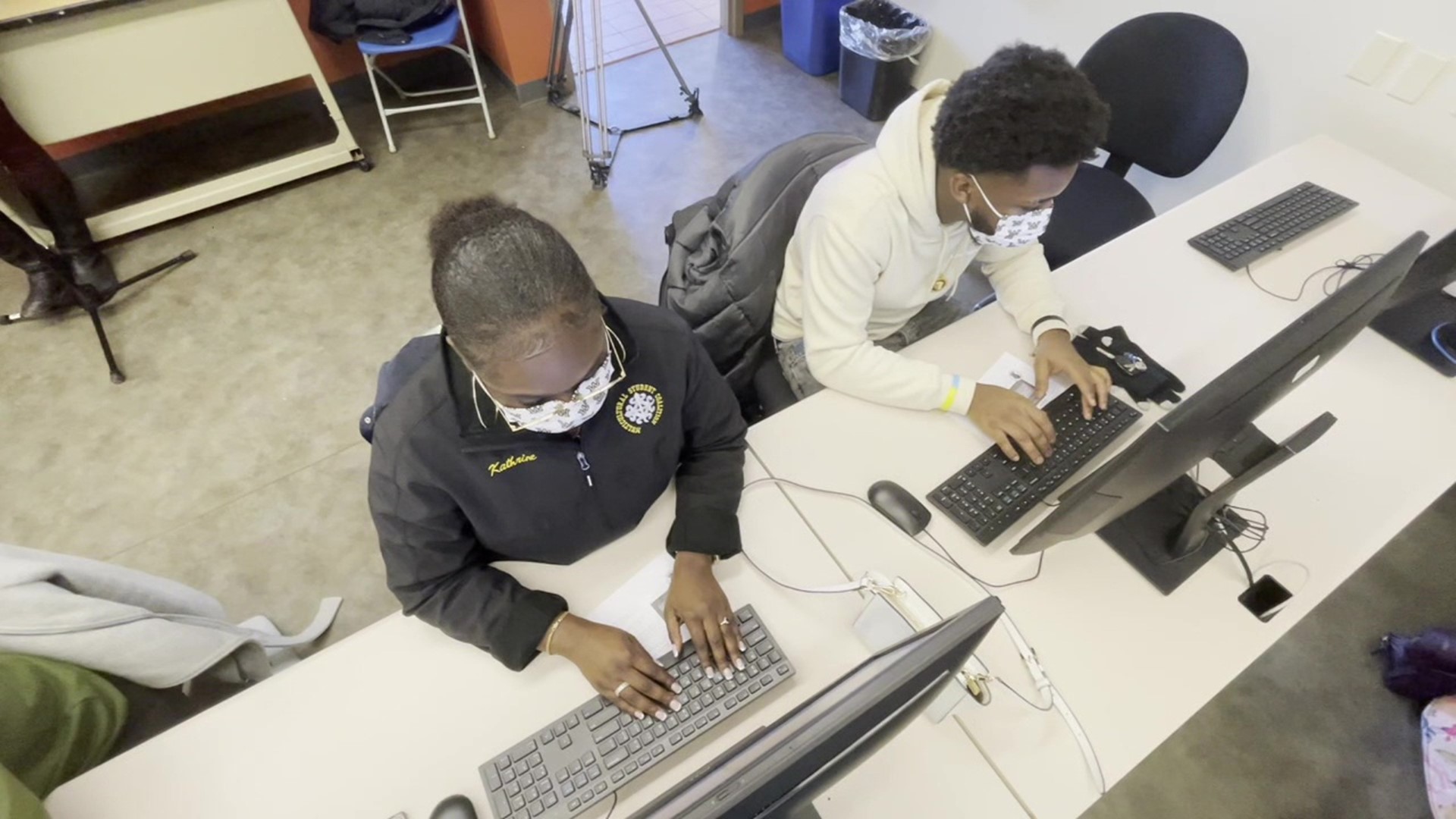WILKES-BARRE, Pa. — Reading, searching, and typing are all part of a normal day for students and staff at Wilkes University, but what's taking place here is a little different.
This is the Third Annual Transcribe-a-Thon in honor of Frederick Douglass Day.
"We are participating in a nationwide set of events that are helping to transcribe historic documents from something called the 'Colored Conventions,'" explained Amy Sopchak-Joseph, an assistant professor of history at Wilkes. "Which were a series of state and nationwide conventions of black activists across the century."
This includes hundreds of thousands of articles, meeting minutes, and other documents that have been digitized but not yet transcribed and uploaded to a searchable database for researchers. This is what students here and others across the country are working on.
"They want you to, even with the typos, to type in exactly as you see it on the paper. So it's very intense work," said Erica Acosta, director of diversity initiatives at Wilkes, taking part in the process.
"To be able to read things that are literally written by our ancestors that paved the way for us to be where we are today. It's really empowering," said Sophomore Katherine Ermeus.
Ermeus is the president of the Multicultural Student Coalition at Wilkes and says it's an honor to transcribe things that are a part of history she's never read before, like notes from Frederick Douglass himself.
"He's talking about, basically, the issues that we sometimes still face today. He's mentioning, you know, how the youths, colored youths, are not being granted the same opportunities, especially within like STEM fields, what we consider STEM today. He mentioned mechanical engineering and mechanical learning," added Ermeus.
And with that honor, she says, comes a little bit of pressure.
"It very much is. I'm reading, and I'm like, 'Oh, I'm doing pretty great,' you know, but I keep looking back like maybe I missed a word. You know, you just don't want to make sure you skip any part of history. Every single word counts," explained Ermeus.
Check out WNEP's YouTube page.

